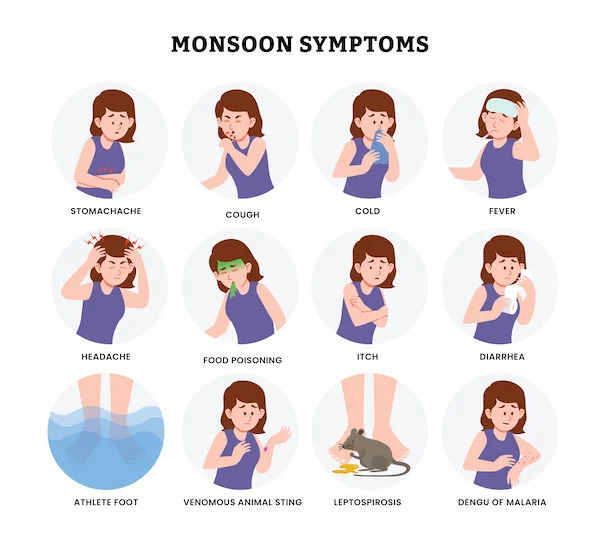Understanding Fatigue
Discover the causes, symptoms, and management of fatigue. Learn how lifestyle, health conditions, and daily habits contribute to tiredness and ways to restore energy.


Introduction
Do you ever feel like no amount of coffee or sleep can shake off that heavy, persistent sense of exhaustion? You're not alone. Fatigue is one of the most common complaints doctors hear, affecting millions worldwide. But it's crucial to understand that fatigue is more than just feeling sleepy after a long day; it's a profound lack of energy that can interfere with your work, social life, and overall well-being. This deep-seated weariness can stem from a myriad of sources, from simple lifestyle habits to underlying medical conditions. This article will serve as your comprehensive guide to understanding fatigue, helping you decipher its potential causes, recognise when it might be a sign of something more serious, and discover effective, evidence-based strategies to reclaim your vitality and get back to feeling like yourself again.
What is Fatigue? Distinguishing Fatigue from Tiredness
While often used interchangeably, tiredness and fatigue are distinct experiences. Tiredness is a normal, expected feeling that typically follows physical exertion or mental strain. It’s usually resolved by a good night’s sleep or a day of rest. Fatigue, on the other hand, is a persistent and relapsing state of exhaustion that isn't relieved by sleep. It's a deeper, more debilitating lack of energy that makes even simple tasks feel monumental. Imagine tiredness as a low battery that recharges overnight; fatigue is like a faulty battery that never holds a full charge, no matter how long you plug it in. This condition often comes with accompanying symptoms like lack of motivation (avolition), brain fog, difficulty concentrating, and moodiness, which significantly impact your quality of life.
A unique insight: Modern "always-on" culture has blurred the lines between tiredness and fatigue. The constant cognitive load from multitasking, digital notifications, and work-life imbalance creates a state of chronic, low-grade stress that prevents the nervous system from fully recovering, leading to a new normal of persistent lethargy that many mistakenly accept as inevitable.
The Two Main Types of Fatigue
To better understand your exhaustion, it helps to categorise it.
1. Physical Fatigue
This type manifests as a profound weakness in the body. Your muscles may feel heavy, weak, or sore, and you might find yourself physically unable to perform activities you normally could. It’s the feeling you might get after running a marathon or fighting off the flu. Common causes include poor physical fitness, overexertion, lack of sleep, or underlying medical conditions like anaemia or thyroid issues.
2. Mental Fatigue
Mental fatigue, often called burnout, is characterised by cognitive decline and emotional exhaustion. You might struggle to focus, make decisions, or find yourself unusually forgetful or irritable. Your brain feels "full," and motivation plummets. This is frequently caused by prolonged periods of intense cognitive activity, chronic stress, anxiety, or information overload. It's common among students, professionals in high-stakes jobs, and caregivers.
Often, these two types are interconnected. Constant tiredness and fatigue are usually a blend of both, where physical depletion leads to mental strain and vice versa.
Consult a General Physician for the best advice
Common Causes of Fatigue: The Usual Suspects
Often, the root of low energy is found in our daily habits. Identifying and modifying these can sometimes resolve fatigue without the need for medical intervention.
Lifestyle and Dietary Factors
- Poor Sleep Quality: It’s not just about quantity. Factors like irregular sleep schedules, screen time before bed, caffeine consumption, and an uncomfortable sleep environment can prevent you from getting restorative deep sleep, leading to daytime exhaustion.
- Nutritional Deficiencies: A diet high in processed foods and sugars can cause energy spikes and crashes. Deficiencies in key nutrients like Iron (leading to anaemia), Vitamin B12, Vitamin D, and magnesium are famously linked to persistent fatigue.
- Dehydration: Even mild dehydration can impair circulation, making your heart work harder to pump oxygen and nutrients to your muscles and organs, which in turn makes you feel sluggish.
- Sedentary Lifestyle: While it seems counterintuitive, a lack of physical activity can lead to decreased stamina and lethargy. Regular exercise improves cardiovascular health and efficiency, meaning your body uses less energy for the same tasks.
- Substance Use: Relying on caffeine or alcohol to function or unwind can severely disrupt natural sleep cycles and energy regulation.
Psychological and Emotional Contributors
- Stress: Chronic stress keeps your body in a constant "fight-or-flight" mode, flooding it with cortisol. This hormonal imbalance is incredibly draining over time.
- Burnout: A state of emotional, physical, and mental exhaustion caused by excessive and prolonged stress, often related to one's job or caregiving responsibilities.
- Boredom: A lack of mental stimulation or engaging activity can surprisingly be a source of fatigue, as it leads to low motivation and energy.
Underlying Medical Conditions Linked to Fatigue
When lifestyle changes aren't enough, it's critical to consider that extreme fatigue can be a primary symptom of an underlying medical condition.
Thyroid Disorders (e.g., Hypothyroidism)
An underactive thyroid (hypothyroidism) dramatically slows down the body's metabolism. This can lead to
overwhelming fatigue, weight gain, feeling cold, and depression. It's a very common cause, particularly among women.
Sleep Apnoea and Other Sleep Disorders
Sleep apnoea is a condition where breathing repeatedly stops and starts during sleep. Each interruption jolts you awake (often without you realising it), preventing you from reaching restorative sleep stages. The result is severe daytime sleepiness and fatigue, no matter how long you spend in bed.
Anaemia and Nutritional Deficiencies
Anaemia, often caused by iron deficiency, means your blood doesn't carry enough oxygen to your tissues. This leaves you feeling weak, short of breath, and extremely tired. A simple blood test can diagnose this.
Chronic Conditions (Diabetes, Heart Disease)
Uncontrolled diabetes can lead to fatigue due to fluctuating blood sugar levels. Heart disease can cause fatigue because the heart struggles to pump oxygen-rich blood efficiently to the body's major organs and muscles. Other chronic conditions like Chronic Fatigue Syndrome (ME/CFS), fibromyalgia, and autoimmune diseases (e.g., lupus, rheumatoid arthritis) also have profound fatigue as a hallmark symptom.
Get Your Health Assessed
The Mind-Body Connection: Mental Health and Fatigue
The link between mental and physical health is undeniable. Depression and anxiety are not just mood disorders; they have intense physical manifestations. Depression often saps energy, motivation, and the ability to concentrate, leading to a heavy, leaden feeling. Anxiety is exhausting because the body is perpetually tense and hyper-vigilant, burning through energy reserves. The brain fog associated with these conditions is a very real form of mental fatigue. Treating the underlying mental health condition is often the key to resolving the accompanying fatigue.
When is Fatigue a Sign of Something Serious?
It's important to listen to your body. While occasional fatigue is normal, you should consult a doctor if your fatigue:
- Is persistent, lasting more than two weeks despite adequate rest.
- Is severe and debilitating.
- Comes on suddenly and without explanation.
- Is accompanied by unexplained weight loss, fever, or night sweats.
- Causes significant confusion, dizziness, or blurred vision.
- Is linked with feelings of depression or thoughts of self-harm.
If symptoms persist beyond two weeks, consult a doctor online with Apollo24|7 for further evaluation to rule out any
serious underlying conditions.
Conclusion
Understanding fatigue is the first and most crucial step toward overcoming it. This pervasive condition is rarely a simple case of "not enough sleep," but rather a complex signal from your body that something is out of balance. Whether it's your lifestyle habits, your mental well-being, or an underlying health issue, the message is the same: it's time to pay attention. By methodically examining your daily routines, acknowledging the role of stress, and not ignoring persistent symptoms, you can begin to identify the root cause. Remember, you don't have to accept constant exhaustion as your normal. Implementing the strategies discussed, from prioritising sleep and nutrition to seeking professional help, can help you break the cycle of fatigue. Take action today. Start with one small change, listen to your body, and take back the energy you deserve.
Consult a General Physician for the best advice
Consult a General Physician for the best advice

Dr. Vivek D
General Physician
4 Years • MBBS
Bengaluru
PRESTIGE SHANTHINIKETAN - SOCIETY CLINIC, Bengaluru

Dr Syed Mateen Pasha
General Physician
2 Years • MBBS
Bengaluru
PRESTIGE SHANTHINIKETAN - SOCIETY CLINIC, Bengaluru

Dr. Syed Ismail Ali
General Practitioner
7 Years • MBBS
Hyderabad
Apollo 24|7 Clinic, Hyderabad

Dr. Dhanraj K
General Physician/ Internal Medicine Specialist
25 Years • MBBS, MD Internal Medicine - Osmania Medical College, Hyderabad
Hyderabad
Apollo Hospitals Jubilee Hills, Hyderabad
(425+ Patients)

Dr. Harshendra Jaiswal
General Physician/ Internal Medicine Specialist
12 Years • MBBS , MD (General medicine)
Kolkata
108 DHANA DHANVANTARI Clinic, Kolkata
(25+ Patients)
Consult a General Physician for the best advice

Dr. Vivek D
General Physician
4 Years • MBBS
Bengaluru
PRESTIGE SHANTHINIKETAN - SOCIETY CLINIC, Bengaluru

Dr Syed Mateen Pasha
General Physician
2 Years • MBBS
Bengaluru
PRESTIGE SHANTHINIKETAN - SOCIETY CLINIC, Bengaluru

Dr. Syed Ismail Ali
General Practitioner
7 Years • MBBS
Hyderabad
Apollo 24|7 Clinic, Hyderabad

Dr. Dhanraj K
General Physician/ Internal Medicine Specialist
25 Years • MBBS, MD Internal Medicine - Osmania Medical College, Hyderabad
Hyderabad
Apollo Hospitals Jubilee Hills, Hyderabad
(425+ Patients)

Dr. Harshendra Jaiswal
General Physician/ Internal Medicine Specialist
12 Years • MBBS , MD (General medicine)
Kolkata
108 DHANA DHANVANTARI Clinic, Kolkata
(25+ Patients)
More articles from General Medical Consultation
Frequently Asked Questions
1. What is the difference between Chronic Fatigue Syndrome and regular fatigue?
Chronic Fatigue Syndrome (ME/CFS) is a specific, complex medical disorder characterised by extreme fatigue that lasts for at least six months and is not improved by rest. It worsens with physical or mental activity (a symptom known as post-exertional malaise) and is accompanied by other symptoms like unrefreshing sleep, cognitive issues, and orthostatic intolerance. Regular fatigue is more common and usually linked to an identifiable cause like poor sleep or stress.
2. Can dehydration really cause that much fatigue?
Absolutely. Even mild dehydration (a fluid loss of 1-2%) can impair cognitive function, mood, and physical performance. Your blood volume drops slightly when dehydrated, making your heart work harder to pump oxygen and nutrients, which directly leads to feelings of tiredness and lethargy.
3. What are the best vitamins for fighting fatigue?
Key vitamins and minerals that support energy production include:
- B Vitamins (especially B12): Crucial for converting food into energy.
- Iron: Essential for carrying oxygen in the blood (iron deficiency anaemia is a common cause of fatigue).
- Vitamin D: Low levels are strongly associated with fatigue and low mood.
- Magnesium: Involved in over 300 biochemical reactions, including energy creation.
It's best to get tested before supplementing to confirm a deficiency.
4. Why do I feel tired all the time even though I sleep 8 hours?
The problem likely isn't the quantity but the quality of your sleep. Conditions like sleep apnoea disrupt your sleep cycle without you waking fully, preventing restorative deep sleep. Other factors include poor sleep hygiene (e.g., using phones in bed), an inconsistent sleep schedule, stress, or underlying medical issues.
5. When should I be really worried about my fatigue?
You should seek immediate medical attention if your fatigue is sudden and severe, accompanied by high fever, shortness of breath, chest pain, severe abdominal/back/pelvic pain, severe headache, or thoughts of harming yourself. For persistent fatigue, the general rule is to see a doctor if it lasts more than two weeks with no clear cause.




.webp)
